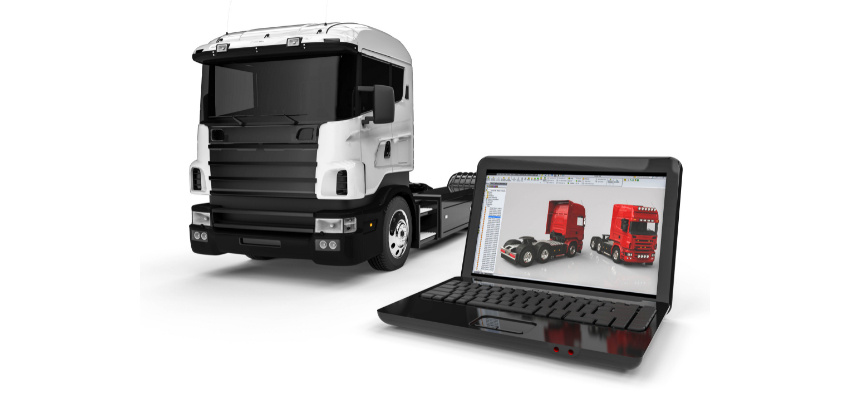Show:
How Technology is Transforming Freight Brokerage Operations
The freight brokerage industry is undergoing a seismic shift, thanks to rapid advancements in technology. For freight brokers, these innovations offer enhanced efficiency, improved customer service, and a competitive edge. This blog post will explore how technology is transforming freight brokerage operations, providing practical insights and examples that highlight its impact.

The Rise of Digital Platforms
Digital freight platforms are online marketplaces that connect shippers and carriers in real time. These platforms leverage advanced algorithms and big data to match loads with available trucks efficiently. Companies like Convoy and Uber Freight are leading the charge, providing user-friendly interfaces and seamless experiences for all parties involved. One major advantage of digital platforms is transparency. Shippers and carriers can view real-time data on rates, availability, and transit times, enabling more informed decision-making. Additionally, these platforms streamline the booking process, reducing administrative overhead and freeing up brokers to focus on value-added tasks. Consider the case of C.H. Robinson, a global leader in third-party logistics. The company launched its digital freight platform, Navisphere, which uses machine learning to optimize routes and reduce costs. Since its implementation, Navisphere has significantly improved operational efficiency and customer satisfaction.
Automation in Freight Brokerage
Automation is transforming freight brokerage by eliminating manual processes and reducing human error. Automated systems handle tasks such as load matching, invoicing, and tracking, allowing brokers to operate more efficiently and scale their businesses. Load boards are a prime example of automation in action. These platforms automatically match available loads with carriers based on predefined criteria, such as location, capacity, and timing. Automated invoicing systems also streamline payment processes, reducing delays and disputes. FreightWaves, a leading provider of freight market intelligence, uses automation to deliver real-time market data and insights. Their SONAR platform combines AI and predictive analytics to help brokers make data-driven decisions, resulting in increased profitability and reduced risk.
Advanced Analytics and Big Data
Data analytics is revolutionizing freight brokerage by providing actionable insights into market trends, pricing, and performance metrics. Brokers can leverage this data to optimize their operations, improve customer service, and make more informed strategic decisions. Advanced analytics tools, such as Tableau and Power BI, allow brokers to visualize complex data sets and identify patterns. Predictive analytics uses historical data to forecast future trends, enabling brokers to stay ahead of the competition. Echo Global Logistics, a technology-enabled transportation management company, uses big data to enhance its service offerings. By analyzing data from thousands of shipments, Echo can identify inefficiencies and implement targeted improvements, resulting in cost savings and improved service levels.
Blockchain Technology
Blockchain is a decentralized ledger technology that provides a secure and transparent way to record transactions. In freight brokerage, blockchain can enhance visibility, traceability, and security across the supply chain. Smart contracts are one of the most promising applications of blockchain in freight brokerage. These self-executing contracts automatically enforce terms and conditions, reducing the need for intermediaries and minimizing the risk of disputes. Maersk, a global leader in container shipping, has partnered with IBM to develop TradeLens, a blockchain-based platform that digitizes the supply chain. TradeLens provides real-time visibility into shipments, reduces paperwork, and enhances security.
The Impact of IoT
The Internet of Things (IoT) refers to interconnected devices that collect and exchange data. In freight brokerage, IoT devices such as GPS trackers and sensors provide real-time information on shipment status, location, and condition. IoT technology enhances visibility and traceability, allowing brokers to monitor shipments in real-time and respond to issues proactively. This leads to improved customer satisfaction and reduced operational risk. FourKites, a real-time tracking and visibility platform, uses IoT technology to provide end-to-end visibility for shippers and carriers. Their platform integrates with telematics devices to offer real-time updates on shipment status, location, and estimated arrival times.

Operations Growth
The integration of advanced technologies such as blockchain and IoT further enhances visibility and traceability, providing a competitive edge. To grow a freight brokerage, brokers can adopt digital platforms, automation, and data analytics, to streamline operations, improve customer service, and increase profitability. Ultimately, technology enables brokers to scale their operations and achieve sustainable growth.
Artificial Intelligence and Machine Learning
Artificial intelligence (AI) and machine learning (ML) are transforming freight brokerage by automating complex tasks and providing predictive insights. These technologies analyze vast amounts of data to identify patterns and optimize decision-making. AI-powered chatbots handle customer inquiries, freeing up brokers to focus on more strategic tasks. Machine learning algorithms predict demand and optimize pricing, helping brokers stay competitive in a dynamic market. Loadsmart, a digital freight platform, uses AI and ML to automate load booking and pricing. Their technology reduces the time and effort required to find suitable carriers, resulting in faster and more efficient operations.
Enhancing Customer Experience
In the competitive world of freight brokerage, providing an exceptional customer experience is crucial. Technology enables brokers to offer personalized, responsive, and transparent services that build trust and loyalty. Customer relationship management (CRM) systems, such as Salesforce and HubSpot, help brokers manage customer interactions and track key metrics. Automated communication tools ensure timely updates and proactive issue resolution. Total Quality Logistics (TQL), one of the largest freight brokerage firms in North America, uses advanced CRM systems to deliver personalized service to their clients. By leveraging technology, TQL can anticipate customer needs and exceed expectations.
Sustainability and Environmental Impact
Technology plays a vital role in promoting sustainability in freight brokerage. Advanced analytics and optimization tools reduce fuel consumption and emissions, contributing to a greener supply chain. Routing optimization software minimizes empty miles by identifying the most efficient routes. Electric and hybrid vehicles reduce the carbon footprint of transportation operations. UPS, a global logistics giant, has implemented a range of sustainable practices, including the use of electric vehicles and route optimization software. Their commitment to sustainability has resulted in significant environmental and cost benefits.
Challenges and Opportunities
While technology offers numerous benefits, the transition to digital platforms and automated systems can be challenging. Brokers must address issues such as data security, system integration, and employee training. Despite these challenges, the opportunities for growth and innovation are immense. Brokers who embrace technology can differentiate themselves in the market, improve efficiency, and grow a freight brokerage. The future of freight brokerage is undoubtedly digital. As technology continues to evolve, brokers must stay agile and adapt to new trends and tools to remain competitive.
The transformation of freight brokerage operations through technology is not just a trend—it’s a necessity. By staying informed about the latest trends and tools, brokers can position themselves for long-term success in an increasingly competitive market. Explore more about how technology can transform your freight brokerage operations and stay competitive in the digital age.

 Return to Previous Page
Return to Previous Page








